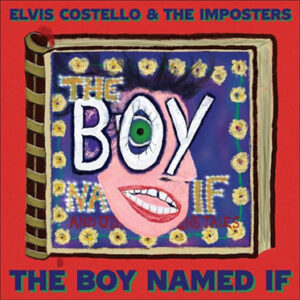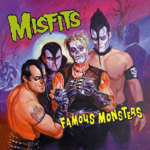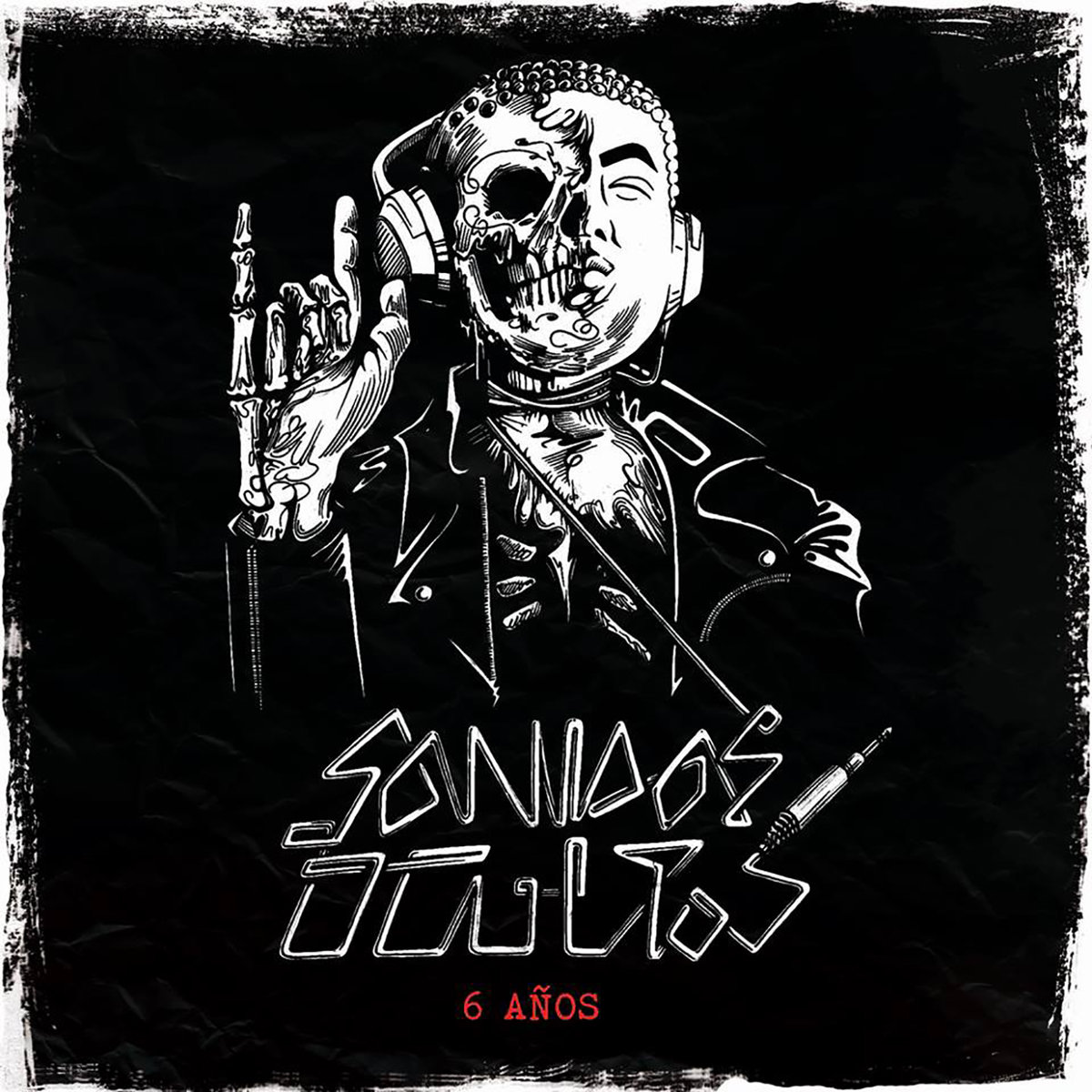

Elvis Costello – «The Boy Named If» (2022)
miércoles 02 de febrero, 2022
Escrito por: Isabella Richter


- Elvis Costello
- "The Boy Named If" (2022)
- ¡Haz clic para puntuar esta entrada!(Votos: 0 Promedio: 0)
- Escucha nuestra música
Una de las gracias, o quizás la gran gracia del nuevo material de Elvis Costello, es sonar fresco, vital, vivaz. Para artistas de la talla de Costello, siempre existe el camino fácil, ese de la comodidad, ese de la receta mágica, ese por el que algunos optan relegando indefinidamente el riesgo y la apuesta, priorizando la seguridad y el bienestar.
En “The Boy Named If”, Costello se reúne nuevamente con The Imposters, pero no en clave nostálgica. Al contrario, es una reunión en pos de la creatividad y la fluidez, amparados en este concepto ideado por Elvis Costello graficado en If, personaje central creado para narrar diversas historias que tratan el complejo e incomprendido tránsito de la niñez a la adultez.
Bajo ese paraguas, el británico dispara una serie de canciones que abarcan variados sonidos y estilos, todo construido en pandemia y a distancia. Cada pieza del colectivo aporta calidad desde su esquina y el resultado es bastante satisfactorio, cada uno luciéndose y brillando con luces propias.
Así, hay canciones que resplandecen y otras que no tanto. “The Boy Named If” con su pulso fuerte es el contrapeso ideal a la primera pista, la desenfadada “Farewell, OK”. De esta forma, “The Boy Named If” es una magnífica carta de presentación a la propuesta del álbum en su conjunto.
También destacan “Paint the Red Rose Blue”, balada pausada, pero a la vez elegante y refinada, siendo uno de los puntos altos del disco. Otro de los fuertes es “My Most Beatiful Mistake”, no solo por la temática propiamente tal, sino el aporte sutil y delicado de Nicole Atkins. “Magnificent Hurt”, canción que viaja en el tiempo hasta fines de los setenta a visitar al joven Costello para hacerle un gesto honesto a la etapa inicial de su carrera, es otra de las cimas del LP.
Sin embargo, pese a teletransportarse a 1978, el álbum no está concebido bajo la perspectiva de la nostalgia, tal como acotamos párrafos atrás. El grupo y Elvis Costello irradian vitalidad, atributo que no todos los viejos estandartes se pueden jactar de poseer, siquiera acercarse a tener. En el caso de muchos, anhelar ya sería mucho.
Y con esa misma frescura, el álbum transita rápido y fluye sin pausas, sumergiendo al oyente en las historias plasmadas en cada capítulo. Es un retorno de Elvis Costello que hay que agradecer, disfrutar y valorar. Las 13 canciones que conforman el álbum tienen méritos suficientes y Costello puede decir “misión cumplida”.
Sin traicionarse ni un milímetro, Elvis Costello da cuenta de que su creatividad está intacta, logrando un disco en que suena fresco y la banda que lo acompaña, suena mejor aún. Aquí está otra de las gracias: gracias a sus composiciones, todos brillan, todos suenan joviales y todo suenan novedoso, pero sin perder la esencia que ha caracterizado la carrera de Elvis Costello.
Inglés
One of the graces, or perhaps the great grace of Elvis Costello’s new material, is to sound fresh, vital, lively. For artists of the stature of Costello, there is always the easy way, that of comfort, that of the magic recipe, that which some choose, relegating risk and gambling indefinitely, prioritizing safety and well-being.
In «The Boy Named If,» Costello reunites with The Attractions, but not in a nostalgic way. On the contrary, it is a meeting in pursuit of creativity and fluidity, loved in this concept devised by Costello graphed in If, a central character created to narrate various stories that deal with the complex and misunderstood transition from childhood to adulthood.
Under that umbrella, the British shoots a series of songs that cover various sounds and styles, all built in a pandemic and at a distance. Each piece of the group provides quality from its corner and the result is quite satisfactory, each one showing off and shining with their own lights.
Thus, there are songs that shine and others that not so much. “The Boy Named If” with its strong pulse is the ideal counterweight to the first track, the light-hearted “Farewell, OK”. In this way, “The Boy Named If” is a magnificent letter of introduction to the proposal of the album as a whole.
They also highlight «Paint the Red Rose Blue», a slow ballad, but at the same time elegant and refined, being one of the high points of the album. Another strong point is “My Most Beatiful Mistake”, not only because of the theme itself, but also the subtle and delicate contribution of Nicole Atkins. “Magnificent Hurt”, a song that travels back in time to the end of the seventies to visit the young Costello to make an honest gesture to the initial stage of his career, is another of the highlights of the LP.
However, despite teleporting to 1978, the album is not conceived from the perspective of nostalgia, as we outlined a few paragraphs ago. The group and Costello radiate vitality, an attribute not all the old banners can claim to possess, even come close to possessing. In the case of many, yearning would already be too much.
And with that same freshness, the album moves fast and flows without pauses, immersing the listener in the stories captured in each chapter. It is a return of Costello that must be appreciated, enjoyed and valued. The 13 songs that make up the album have enough merit that Costello can say “mission accomplished”.
Without betraying himself one millimeter, Elvis Costello realizes that his creativity is intact, achieving an album that sounds fresh and the band that accompanies it sounds even better. Here is another grace: thanks to his compositions, everyone shines, everyone sounds jovial and everything sounds new, but without losing the essence that has characterized Costello’s career.
Este artículo ha sido visitado 469 veces, de las cuales 1 han sido hoy




























